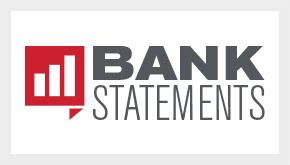Lights, Camera, Regulatory Action? Practical Considerations for Cannabis Lenders
In March of 2021, we published an article in The Secured Lender, sharing insight and expectations for the future of cannabis lending. At that time, the cacophony of state and federal laws at odds with each other presented unique challenges for lenders wishing to service marijuana-related businesses (MRBs). By the close of that year, U.S. cannabis sales reached prime time – $25 billion, according to research from Bank of America Securities.
In just over 2.5 years, the industry has transformed, and lenders are increasingly pressured to overcome the challenges associated with accommodating the growing demands of the cannabis industry. In March 2023, Reuters noted that “only about 10% of all U.S. banks and about 5% of all credit unions provide cannabis banking, as per analysts’ estimates.”
According to cannabis researcher Brightfield Group, the market is estimated to reach over $31.8 billion in annual sales by the end of 2023, and amass roughly $50.7 billion in annual sales by 2028.
Traditional and non-traditional lenders have begun to dip their proverbial toes into cannabis lending. A quick Google search turns up dozens of results for such lenders. Apart from the federal illegality and compliance with banking regulations, all lenders face practical problems with security for loans to cannabis borrowers.
As a preliminary matter, securing loans with a cannabis borrowers’ assets may be problematic. Many states do not permit security interests in cannabis licenses or cannabis products. Some states permit these types of security interests, but only after the lender has submitted to a background check or some other approval process.
Second, regardless of whether the lender takes a security interest, some states require lenders to submit to a “lender suitability” or “financial interest holder” background check and investigation, merely by virtue of loaning funds to a cannabis company. These types of background checks may be comprehensive or protracted, and the failure to undergo a lender suitability check may subject the lender to regulatory action.
Third, remedies on defaulting loans to cannabis establishments can be precarious. Foreclosing lenders will undoubtedly need to involve regulators. This practical fact all but prohibits any self-help remedies under the Uniform Commercial Code (UCC) because taking possession of collateral may not be feasible for a lender if it is not licensed as an MRB by the state. Even seizing non-cannabis assets may require regulatory action to access the licensed premises where the non-cannabis assets may be located.
These practical problems are not insurmountable, however. Assuming that taking a security interest in licenses or cannabis products is prohibited under applicable state law, some lenders are employing alternative strategies to secure their loans. The following list is not exhaustive, but rather representative of some possible transactions.
Secured Real Estate. Where a borrower owns the real property on which the cannabis establishment sits, the real property may be a source of collateral. This is especially true if the owner of the property is a real estate holding company that is separate from the cannabis operating company. The lender is thus lending to a real estate holding company instead of a cannabis establishment. The need to involve regulators, as mentioned above, though, complicates evictions and foreclosure actions.
A twist on securing real estate is a sale/leaseback arrangement. In this case, a lender purchases the real property and then leases the property back to the cannabis operating company.
Equipment. While taking a security interest in cannabis and cannabis licenses can be problematic, taking a security interest in non-cannabis assets may be feasible. Trade fixtures, grow beds, lights, security systems, climate control systems, etc. may all be subject to a security interest without typically running afoul of any regulations. Again, seizing non-cannabis assets may still require regulatory assistance, and the non-cannabis assets may not be as valuable of an asset as the licenses or the inventory. Careful drafting of the description of the collateral is essential in this case.
Brand/Intellectual Property. Like equipment, a cannabis establishment may have a brand or some intellectual property that may licitly be subject to a security interest. Similarly, the establishment may be receiving royalties from the sale or lease of its brand. These royalties may also be subject to a security interest that does not require regulatory approval.
Deposit Account Control Agreements. Cannabis companies’ access to conventional banking is still a hurdle, but it is becoming less of a problem. Presuming the borrower has access to a bank account (and presuming the deposit-holding bank cooperates), a lender could take a security interest in the cannabis establishment’s bank account. In some jurisdictions, this will not violate regulations, but it may in others. Like all cannabis regulatory matters, a jurisdiction-specific analysis is necessary. In addition to competent commercial lawyers, prospective lenders are encouraged to seek out qualified cannabis lawyers in the jurisdictions in which they operate.
Convertible Loans (Working Capital Loans). Non-traditional lenders may consider loans that convert to equity upon an event of default. The loan agreement, per se, might not be subject to state regulatory approval. Upon conversion, however, the transfer of the equity interests will likely be subject to approval by the applicable state’s cannabis regulators.
Personal Guaranties of Principals. The tried-and-true personal guaranty is also a way of securing a loan to a cannabis establishment.
Key Takeaways
While more and more lenders are exploring loans to cannabis establishments, securing these loans may be problematic because many states prohibit security interests in cannabis licenses or cannabis products. However, the practical problems with security are not insurmountable. There are a number of strategies that lenders can employ to secure their loans. In addition to engaging competent commercial lawyers, it is important that lenders also engage qualified cannabis lawyers in the jurisdictions in which they are making loans to

































